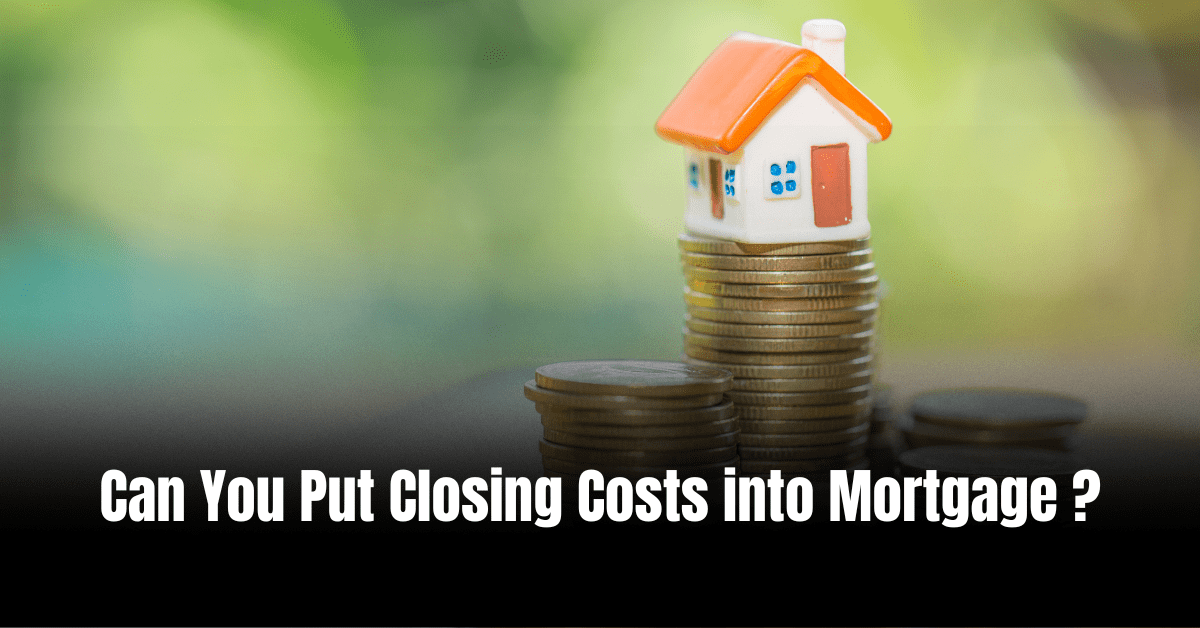When it comes to buying a home, one of the significant expenses you’ll encounter is closing costs. These costs typically include fees such as appraisal fees, title insurance, attorney fees, and lender fees. Many home buyers wonder if they can add these closing costs to their mortgage, spreading out the payments over the life of the loan. Let’s explore whether or not it’s possible to include closing costs in your mortgage.
The general rule
Typically, closing costs cannot be directly added to your mortgage loan. Mortgage lenders require a certain down payment to secure the loan, and adding closing costs to the mortgage would increase the loan amount. This would mean either increasing your down payment or securing a larger loan, both of which may not be feasible for many home buyers.
However, there are exceptions.
While adding closing costs to your mortgage is not the norm, there are a few exceptions that might allow you to do so:
- Seller concessions: In some cases, the seller may agree to pay a portion or all of the closing costs. This can be negotiated as part of the purchase agreement. If the seller is willing to cover the closing costs, it effectively reduces the amount of money you need to bring to the closing table.
- Lender credits: Some mortgage lenders offer a credit toward closing costs as an incentive to secure your loan with them. This can help offset the costs and reduce the amount you need to pay out of pocket.
- Refinancing: If you’re refinancing your home, it’s possible to roll the closing costs into the new loan. This allows you to spread out the payment over the life of the refinanced loan. However, it’s essential to consider whether it’s financially beneficial to do so, as you’ll be paying interest on the closing costs over the long term.
Benefits and drawbacks
Adding closing costs to your mortgage loan can have both benefits and drawbacks. Let’s take a look at both:
Benefits
- Reduced upfront expenses: By adding the closing costs to your mortgage, you can avoid paying a large sum of money at the time of closing.
- Spread out payments: Including closing costs in your mortgage allows you to spread out the payments over the life of the loan, making it more manageable in your monthly budget.
Drawbacks
- Increased loan amount: Adding closing costs to your mortgage means taking out a larger loan, which might not be ideal for everyone.
- Long-term interest payments: Including closing costs in your mortgage extends the repayment period, resulting in additional interest payments.
- Higher monthly payments: Spreading out the closing costs over the life of the loan can lead to higher monthly mortgage payments.
Consider your financial situation.
Before deciding whether to add closing costs to your mortgage, it’s essential to consider your own financial situation and long-term goals carefully. Evaluate factors such as your available down payment, monthly budget, and the overall cost of borrowing. It may be beneficial to consult with a mortgage professional who can provide personalized advice based on your specific circumstances.
The bottom line
While it’s not common practice to include closing costs in your mortgage, there are some situations where it can be done. Negotiating seller concessions, taking advantage of lender credits, or rolling the costs into a refinance loan are potential avenues to explore. However, it’s crucial to weigh the benefits and drawbacks and consider your own financial situation before making a decision. Remember, buying a home is a significant financial decision, so it’s essential to choose the option that aligns best with your long-term goals.
Frequently Asked Questions On Can You Put Closing Costs Into a Mortgage: A Complete Guide
Can You Add Closing Costs To Your Mortgage?
Yes, it is possible to add your closing costs to your mortgage. This means that instead of paying these costs upfront, they will be rolled into your loan amount. Keep in mind that this will increase your mortgage balance and monthly payments.
What Are Closing Costs?
Closing costs are the fees and expenses associated with finalizing a mortgage loan. These costs typically include fees for appraisal, title search, credit report, loan origination, and more. The buyer usually pays them during the closing process.
Why Would I Want To Roll Closing Costs Into My Mortgage?
Rolling closing costs into your mortgage can be beneficial if you don’t have enough cash on hand to pay them upfront. It allows you to spread out the payment over the life of your loan, easing the immediate financial burden.
However, keep in mind that you’ll be paying interest on these costs over the long term.
Can Rolling Closing Costs Into My Mortgage Affect My Interest Rate?
In most cases, rolling closing costs into your mortgage will not directly affect your interest rate. However, it may affect your loan-to-value ratio (LTV), which can indirectly impact your interest rate. It’s recommended to discuss this with your lender for a better understanding of your specific situation.
Ismail Hossain is the founder of Law Advised. He is an Divorce, Separation, marriage lawyer. Follow him.





Leave a Reply